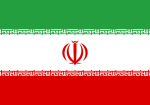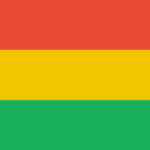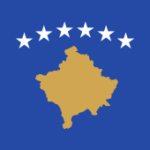Fees for registering Lithuania trademarks
Service Process
Trademark registration time
The current trademark regulations of the Republic of Lithuania are mainly based on the Trademark Law enacted on October 10, 2000. The National Patent Office of the Republic of Lithuania is responsible for the unified management of trademark affairs, and the official language is Lithuanian. Trademark exclusive rights need to be obtained through registration. Trademark registration is not mandatory, but in order to protect the trademark or renew it, it must be registered in accordance with the law. The Republic of Lithuania adopts the principle of "application first" for trademark registration, but for well-known trademarks, trademark rights can also be claimed based on "prior use".
The Republic of Lithuania is a signatory to international intellectual property treaties such as the Paris Convention, the Nice Agreement, the Trademark Law Treaty, and the Singapore Treaty. It is also a member of the European Union and the Madrid Protocol, so trademark registration can be processed through "single country registration", "EU registration", or "Madrid International Registration".
Trademark Registration Process
At present, the National Patent Office of the Republic of Lithuania adopts the Nice Classification 11th edition for the description of goods and services and accepts applications for multiple categories in one form. The elements that can be registered as trademarks in the Republic of Lithuania include: text, graphics, letters, numbers, three-dimensional logos, color combinations, etc.
If the applicant does not reside in the Republic of Lithuania (excluding applicants from EU member states), they must entrust a specialized agent in their home country to handle the matter. The basic materials required for trademark application are:
1. Trademark design;
2. Specific categories and product/service items;
3. Name and address of the applicant;
4. Power of attorney;
5.If priority is declared, priority proof documents and corresponding Lithuanian language translations must be provided.
The main process for applying for registration of a trademark in the Republic of Lithuania is: application acceptance examination approval announcement issuance. The application will be accepted within about 2 weeks after submission. The examiner will conduct formal and substantive examinations on the application. Formal review mainly examines whether the application requirements and classification information comply with regulations; The substantive examination includes the distinctiveness of the trademark and whether it violates the prohibition and prohibition clauses. If the review fails, a rejection notice will be issued and the applicant will be required to respond within the time limit specified in the rejection notice. After the registration is approved, an announcement will be arranged, and a 3-month objection period will be set from the announcement date. Any interested party or prior rights holder may raise objections, and the main reasons for raising objections are:
1. Conflict with prior trademarks, such as owning a prior registered trademark;
2. The trademark lacks distinctiveness;
3. Has adverse effects;
4. Trademarks only directly represent the quality, main raw materials, function, purpose, quantity, weight, value, place of origin, production date, or other characteristics of goods and services;
5. Trademarks have only the shape generated by the nature of the goods themselves, only the shape required to obtain technical effects, and only the shape that gives the goods substantial value.
If there are no objections or objections are not valid during the announcement period, a registration certificate will be issued. In a smooth situation, trademark registration in the Republic of Lithuania takes about 18 months; If there are any objections or rejections encountered during the process, the time will be extended.
Trademark registration materials
The trademark of the Republic of Lithuania is valid for 10 years after registration, starting from the date of application; Renewal can be processed within 6 months before the expiration date, with a grace period of 6 months; The renewal is valid for 10 years.
The invalidation or revocation application after trademark registration can generally be filed in accordance with the following provisions of the Trademark Law of the Republic of Lithuania:
Article 46: (1) Violation of Article 6 of the Trademark Law (Article 6 mainly provides absolute reasons for rejecting trademark registration applications);
Article 47, Paragraph 1: (1) The trademark has become a common name, (2) The trademark is prone to mislead the public, especially in terms of the nature, quality, and source of goods or services;
Article 47, Paragraph 2: If a trademark is not actually used in that country for five consecutive years after registration, anyone may apply for revocation, except for force majeure.
Start Your Trademark Business
Start Registration

do not understand? Contact us

do not understand? Contact us

do not understand? Contact us

do not understand? Contact us


 Lithuania
Lithuania